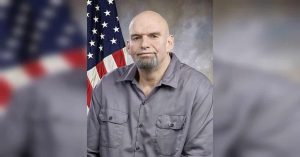Next president likely to face uphill policy battles with divided Congress
As is always the case, presidential campaign ads in the current cycle are full of promises about what each hopeful intends to do once in the Oval Office.
However, as Paul Kane of the Washington Post points out, regardless of who wins in November, the path to achieving any or all of those policy goals may well be impeded almost entirely by a recalcitrant legislature, with Kamala Harris facing the possibility of an especially rough road.
Divided Congress likely
As Kane points out, the last five newly chosen presidents in the United States have enjoyed majority control of both chambers upon taking office.
Such scenarios have held out the promise of sizable legislative achievements and the furtherance of policy goals outlined during general election campaigns.
However, this time around, the electoral math does not align with such an outcome, given that Democrats need to pick up just four seats in order to retake control of the House, and the GOP needs to flip just one seat to seize power in the Senate.
Were such possibilities to play out as described this November, the result would not only be historic, but it would also pose substantial hurdles to the sort of progress every new president hopes to trigger.
Longtime congressional insider John Lawrence explained, “A split Congress at this point means a legislative dead-end for major policy initiatives legislatively and would likely further enhance the subordination of the legislative to the executive branch, which will govern through executive actions,” with political strategist Antonia Ferrier adding, “In sort, next year a new president will struggle to move a big agenda in a divided Congress and will have to devote much of the year to dealing with tax and spending issues.”
Harris and the high court
Should Harris prevail at the polls, she would have yet another set of challenges ahead, as Jason Linkins for the New Republic recently explained, in the form of a conservative-leaning U.S. Supreme Court that many liberals believe would be the death-knell to her policy preferences.
Thanks to the three right-leaning justices who rose to the court during Trump's first term, Harris' list of policies touching on issues such as climate change, Medicare for All, and more, would likely have trouble getting off the ground.
Linkins lamented the far-reaching impact of the court's decision to overturn the Chevron doctrine of deference to administrative agencies, saying that the “best way of describing what the conservative majority did is to say it gave six unelected right-wing politicians who all enjoy a lifetime appointment a line item veto over anything a Democratic Congress – and by extension Harris – wants to do, unless they can muster the votes to confront each problem they want to solve with an inhuman amount of hyper-specificity.”
The answer for Harris, should she win, says Linkins, is to urge fellow liberals to take up the cause, which he believes may need to include a battle to pack the court, lest the high court “remain the rock in the road that Democrats must find a way around.”
Even if he must ultimately contend with a divided Congress that stymies his expansive agenda, Trump, at least to date, has shown no interest in expanding or rigging the Supreme Court in this way, and that approach is one that millions hope will propel him back to the White House in just a few months' time.




